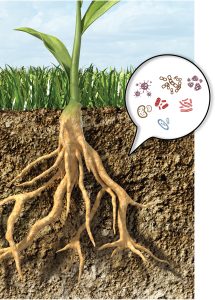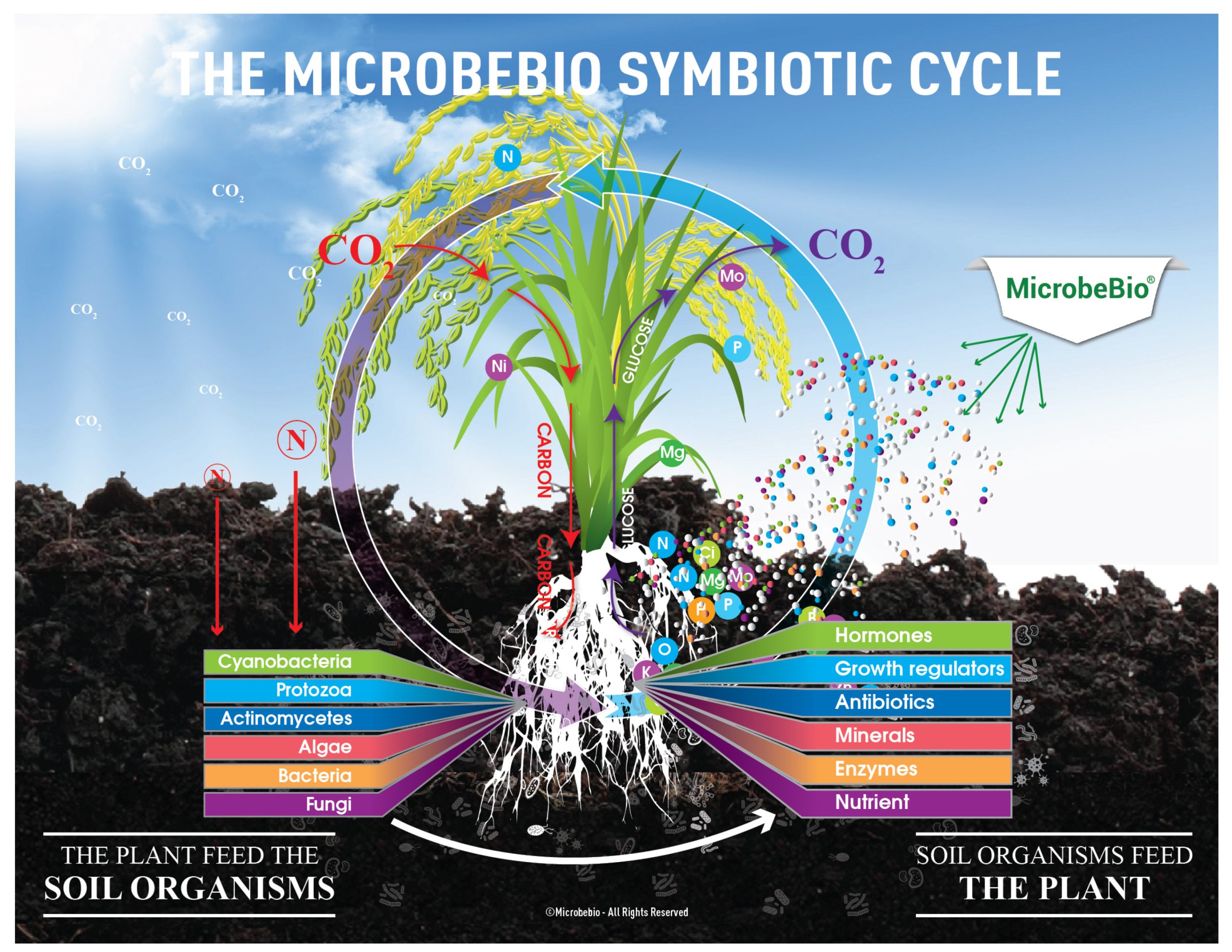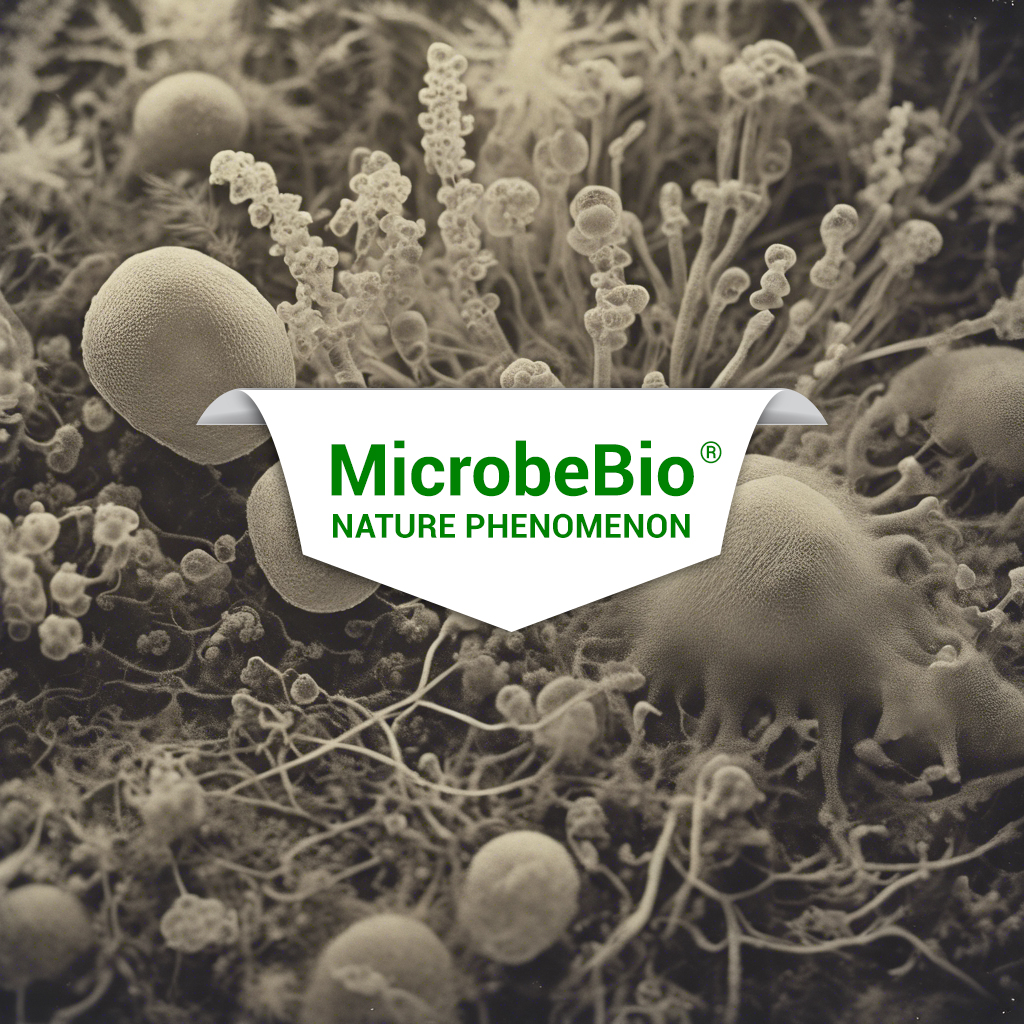Microbebio a groundbreaking solution
 In the ever-evolving landscape of agriculture, the quest for sustainable and efficient farming practices has never been more critical. As the global population continues to rise, the demand for food increases, putting pressure on agricultural systems to produce more while minimizing environmental impact. Enter Microbebio, a groundbreaking solution that harnesses the power of microbes, mycorrhizal fungi, and 100% organic nutrients to revolutionize the way we feed the world. By enhancing crop yield, aroma, and taste, Microbebio not only supports better animal and human health but also contributes to environmental protection and CO2 reduction.
In the ever-evolving landscape of agriculture, the quest for sustainable and efficient farming practices has never been more critical. As the global population continues to rise, the demand for food increases, putting pressure on agricultural systems to produce more while minimizing environmental impact. Enter Microbebio, a groundbreaking solution that harnesses the power of microbes, mycorrhizal fungi, and 100% organic nutrients to revolutionize the way we feed the world. By enhancing crop yield, aroma, and taste, Microbebio not only supports better animal and human health but also contributes to environmental protection and CO2 reduction.
The Power of Microbes in Agriculture
Microbes are the unsung heroes of agriculture, playing a pivotal role in soil health and plant growth. These microscopic organisms are responsible for breaking down organic matter, cycling nutrients, and supporting plant health. By introducing beneficial microbes into agricultural systems, Microbebio enhances the natural processes that occur in the soil, leading to healthier crops and improved yields.
Soil Health and Nutrient Cycling
Soil microbes are integral to the global carbon cycle, as they process plant-derived carbon and contribute to soil respiration[5]. By enhancing microbial activity in the soil, Microbebio helps to improve soil structure, increase nutrient availability, and promote healthy root systems. This results in more robust plants that can better withstand environmental stresses and produce higher yields.
The Role of Mycorrhizal Fungi
Arbuscular mycorrhizal fungi (AMF) form symbiotic relationships with the majority of land plants, facilitating nutrient uptake and improving soil health[1]. These fungi extend the root system of plants, allowing them to access nutrients and water more efficiently. Microbebio leverages the power of AMF to enhance plant growth, improve crop quality, and increase resistance to pests and diseases.
 Enhancing Crop Yield and Quality
Enhancing Crop Yield and Quality
By promoting the growth of mycorrhizal fungi, Microbebio improves nutrient cycling and soil fertility, leading to increased crop yields and better-quality produce[4]. The enhanced nutrient uptake not only boosts plant growth but also improves the nutritional content of the crops, resulting in more flavorful and aromatic produce.
100% Organic Nutrients and Micronutrients
Microbebio’s formulation includes a blend of organic nutrients and micronutrients essential for plant health. Micronutrients such as iron, zinc, manganese, copper, and boron play crucial roles in various plant functions, supporting growth and development[3]. By providing a balanced supply of these nutrients, Microbebio ensures that plants receive the necessary elements for optimal health and productivity.
Supporting Sustainable Agriculture
The use of organic nutrients and micronutrients aligns with sustainable agricultural practices, reducing the reliance on synthetic fertilizers and pesticides. This not only benefits the environment by minimizing chemical runoff and pollution but also supports the health of the ecosystem by promoting biodiversity.
Environmental Benefits and CO2 Reduction
One of the most significant advantages of using Microbebio is its contribution to environmental protection and CO2 reduction. By enhancing soil health and promoting sustainable farming practices, Microbebio helps to sequester carbon in the soil, reducing atmospheric CO2 levels and mitigating climate change[5].
Protecting Crops from Pests and Diseases
Healthy plants are more resistant to pests and diseases, reducing the need for chemical interventions. Microbebio supports plant health by strengthening natural defense mechanisms and promoting beneficial soil organisms that help protect crops from harmful pathogens[4]. This leads to healthier crops and reduced environmental impact from pesticide use.
Common Uses and Applications
Microbebio is versatile and can be used in various agricultural settings, from large-scale farms to small community gardens. Its applications extend beyond traditional crop production, making it suitable for use in:
- Vertical Farming: Enhancing nutrient uptake and plant growth in controlled environments.
- Rewilding Projects: Supporting the restoration of natural ecosystems by improving soil health and promoting plant biodiversity[2].
- Regenerative Agriculture: Contributing to sustainable farming practices that focus on soil health and ecosystem restoration.
Meeting the Needs of Diverse Agricultural Systems
Microbebio is designed to be adaptable to different agricultural systems, providing tailored solutions to meet the unique needs of each environment. Whether it’s improving crop yield in conventional farming or supporting sustainable practices in organic agriculture, Microbebio offers a comprehensive approach to enhancing plant health and productivity.
As the world faces increasing challenges in food production and environmental sustainability, innovative solutions like Microbebio are essential. By harnessing the power of microbes, mycorrhizal fungi, and organic nutrients, Microbebio offers a sustainable and effective way to enhance crop yield, improve food quality, and protect the environment. With trending hashtags like #SustainableAgriculture, #Microbebio, and #OrganicFarming, spreading awareness and encouraging the adoption of these practices can help shape a better future for agriculture and the planet.
